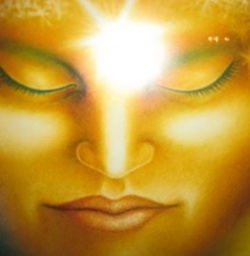Difference between revisions of "Aliens"
| (6 intermediate revisions by 2 users not shown) | |||
| Line 1: | Line 1: | ||
| − | + | [[File:12mind-copy.jpg|thumb|250px|]] | |
“''He recalls to [[mind]] his various temporary states in days gone by – one [[birth]], or two or three or four or five [[births]], 10 or 20, 30 or 50, a 100 or a 1,000 or a 100,000 [[births]], through many cycles of [[cosmic]] contraction and [[cosmic]] expansion . . . Now there comes a [[time]], when sooner or later, after the lapse of a long, long period of contraction, this world-system passes away. And when this happens [[beings]] have mostly been [[re-born]] in the [[World of Radiance]], and there they dwell made of [[mind]], [[feeding on joy]], radiating [[light]] from themselves, traversing the [[air]], dwelling in glory; and thus they remain for a long, long period of [[time]]. Now there comes also a [[time]], friends, when sooner or later, this [[universe]] begins to re-evolve by expansion''.” ([[Brahmajala Sutta]], [[Digha Nikaya]]) | “''He recalls to [[mind]] his various temporary states in days gone by – one [[birth]], or two or three or four or five [[births]], 10 or 20, 30 or 50, a 100 or a 1,000 or a 100,000 [[births]], through many cycles of [[cosmic]] contraction and [[cosmic]] expansion . . . Now there comes a [[time]], when sooner or later, after the lapse of a long, long period of contraction, this world-system passes away. And when this happens [[beings]] have mostly been [[re-born]] in the [[World of Radiance]], and there they dwell made of [[mind]], [[feeding on joy]], radiating [[light]] from themselves, traversing the [[air]], dwelling in glory; and thus they remain for a long, long period of [[time]]. Now there comes also a [[time]], friends, when sooner or later, this [[universe]] begins to re-evolve by expansion''.” ([[Brahmajala Sutta]], [[Digha Nikaya]]) | ||
According to the [[Buddha]] the [[universe]] has no [[Wikipedia:Absolute (philosophy)|ultimate]] beginning or end ([[Samyutta Nikaya]] 2. 178), but rather [[forms]], dissolves and reforms again over a vast period of [[time]] (D.III,84). | According to the [[Buddha]] the [[universe]] has no [[Wikipedia:Absolute (philosophy)|ultimate]] beginning or end ([[Samyutta Nikaya]] 2. 178), but rather [[forms]], dissolves and reforms again over a vast period of [[time]] (D.III,84). | ||
| − | The [[Buddha]] also says that within these [[world]] systems are "''thousands of suns, thousands of moons, thousands of continents''" ([[Anguttara Nikaya]] 1. 227). He also speaks of the "''the black, gloomy regions of darkness between the [[world]] systems, where the [[light]] of our [[moon]] and {{Wiki|sun}}, powerful and majestic though they are, cannot reach''" ([[Majjhima Nikaya]] 3. 124), suggesting that these galaxies are great distances away from each other in [[space]]. | + | The [[Buddha]] also says that within these [[world]] systems are "''thousands of suns, thousands of moons, thousands of continents''" ([[Anguttara Nikaya]] 1. 227). He also speaks of the "''the black, gloomy regions of {{Wiki|darkness}} between the [[world]] systems, where the [[light]] of our [[moon]] and {{Wiki|sun}}, powerful and majestic though they are, cannot reach''" ([[Majjhima Nikaya]] 3. 124), suggesting that these {{Wiki|galaxies}} are great distances away from each other in [[space]]. |
| + | |||
| + | In 2013 it was reported that "''Many more {{Wiki|planets}} are thus out there, zipping undetected around their parent {{Wiki|stars}}. Indeed, a team of researchers estimated last year that every {{Wiki|Milky Way}} star hosts, on average, 1.6 [[worlds]] — meaning that our {{Wiki|galaxy}} perhaps harbors 160 billion {{Wiki|planets}}''." <ref>"Number of Confirmed Alien {{Wiki|Planets}} nears 1,000"</ref> | ||
| − | |||
{{reflist}} | {{reflist}} | ||
| + | |||
{{R}} | {{R}} | ||
| + | |||
[http://www.dhammawiki.com/index.php?title=Aliens&action=edit www.dhammawiki.com] | [http://www.dhammawiki.com/index.php?title=Aliens&action=edit www.dhammawiki.com] | ||
| + | |||
[[Category:Buddhism]] | [[Category:Buddhism]] | ||
Latest revision as of 07:59, 18 March 2014
“He recalls to mind his various temporary states in days gone by – one birth, or two or three or four or five births, 10 or 20, 30 or 50, a 100 or a 1,000 or a 100,000 births, through many cycles of cosmic contraction and cosmic expansion . . . Now there comes a time, when sooner or later, after the lapse of a long, long period of contraction, this world-system passes away. And when this happens beings have mostly been re-born in the World of Radiance, and there they dwell made of mind, feeding on joy, radiating light from themselves, traversing the air, dwelling in glory; and thus they remain for a long, long period of time. Now there comes also a time, friends, when sooner or later, this universe begins to re-evolve by expansion.” (Brahmajala Sutta, Digha Nikaya)
According to the Buddha the universe has no ultimate beginning or end (Samyutta Nikaya 2. 178), but rather forms, dissolves and reforms again over a vast period of time (D.III,84).
The Buddha also says that within these world systems are "thousands of suns, thousands of moons, thousands of continents" (Anguttara Nikaya 1. 227). He also speaks of the "the black, gloomy regions of darkness between the world systems, where the light of our moon and sun, powerful and majestic though they are, cannot reach" (Majjhima Nikaya 3. 124), suggesting that these galaxies are great distances away from each other in space.
In 2013 it was reported that "Many more planets are thus out there, zipping undetected around their parent stars. Indeed, a team of researchers estimated last year that every Milky Way star hosts, on average, 1.6 worlds — meaning that our galaxy perhaps harbors 160 billion planets." [1]
